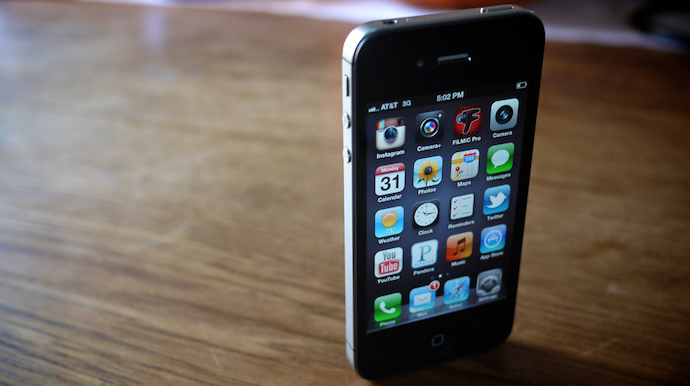Is that My Phone Buzzing In My Pocket? Or Am I Just Happy I Might Be Getting An Alert?

Image via Flickr/ MattsMacintosh
If you’re a smartphone user there is an 80 percent chance you’ve experienced the sensation of a buzzing from the area where you keep your phone, or thought you heard your phone ringing when it wasn’t, according to a recent study. This “phantom-like” buzzing effect causes you to reach for your phone, check the screen, and realize nothing new is there. Similar to phantom buzzing is something called phantom ringing, which is something that 30 percent of smartphone users experienced before.
I’ve experienced both phantom buzzing and ringing, but never quite understood what and why it was happening. Until now. It turns out, these phantom occurrences can be related to a psychological theory called:
Signal Detection Theory (SDT)
First and foremost, these phantom occurrences are a common and unavoidable aspect of a healthy mind and body. So if they are happening to you, you are not going crazy — you’re actually quite normal.
SDT is grounded in the idea that our bodies are a perceptual system; we use our senses to bring outside notifications to our attention, and we respond to them. When we hear an alarm, we become alert. When we smell something pleasant, we become attracted to it. When we feel or hear our phone notify us, we check up on it.
With me so far?
Good.
There are two possible states that your phone can be in: notifying you, or not notifying you. These two states determine our response. When the state of the phone matches our response (i.e., when it buzzes and we pick it up) it’s called “a hit.” When the off state matches our non response, it’s called a “correct rejection” (i.e., the phone’s not notifying me and I am correctly rejecting checking up on it).
Phantom Occurrences
When you react with a “a hit” when you should be using a “correct rejection,” you are displaying what happens in a phantom occurrence; meaning, we check our phones when we think we got a notification based on a feeling or a noise, but in actuality there was no notification at all.
If we pull away from the phone example, we can see that we make these mismatches several times a day. For example, if you see a green light you might trigger “a hit” that means you should go, however, there may be a someone you don’t see stepping into traffic. This situation would lead to a horrible unintentional accident that would have be caused by a mismatch of triggers.
SDT says we can lower the chance of mismatches if we open our sensitivity to what we are trying to detect. In my stoplight example, I am sure to always check for pedestrians or speeding vehicles when making a left turn at a green light. In doing this, I am decreasing the chance of the green light being the only trigger that determines my decision.
Let’s bring this back to phones: the best way to lower the chance of a mismatch to occur would be to increase the vibration level of the phone (there are apps for this) or moving the phone to another part of your body, like a different pocket. In other words, we need to increase or change the level of notification so it communicates to us better.
So that’s how phantom occurrences happen, but now let’s talk about the why.
Why do Phantom Occurrences Happen?
The reason why phantom occurrences, occur, is due to the fact that people in general don’t like missing a call; people like being alert to notifications that their phone gives them, no matter how important or unimportant the alert is. This importance we put on notification has our tuned our body in a way that’s sure to not miss these alerts. In the study, it was found that the 80 percent of people who experience phantom buzzing were also people that scored highly on a test that places a high cost on missing a call. Our bodies are being changed in the sense that they are creating these false alerts as a way to make sure we never miss real ones.
A comparable relationship can be found in fire alarms. If you are like most people, when you hear a fire alarm, you don’t immediately panic. I sure don’t. At least not right away. Alarms are not broken, it’s just that they are sensitive to things like smoke and heat so they go off more than they should (better safe than sorry). In general, we hear alarms going off all the time and we don’t necessarily do anything about it. I hear car alarms going off several times a week in my neighborhood, but I have never ran out to see if there was a car being broken into, or attempted to call the police.
Our bodies are behaving in the same way as these alarms. Our bodies are creating notifications of their own that alert us to check the notifications in our phone, even if they are really there or not.
***
The perceptions we have of the world around us determines our reactions. Phantom notifications are simply our body adjusting to the importance we place on our phone notifications. They are normal, but if you want them to go away, the way to go about doing so would be to not treat your phone notifications as being so important.









































